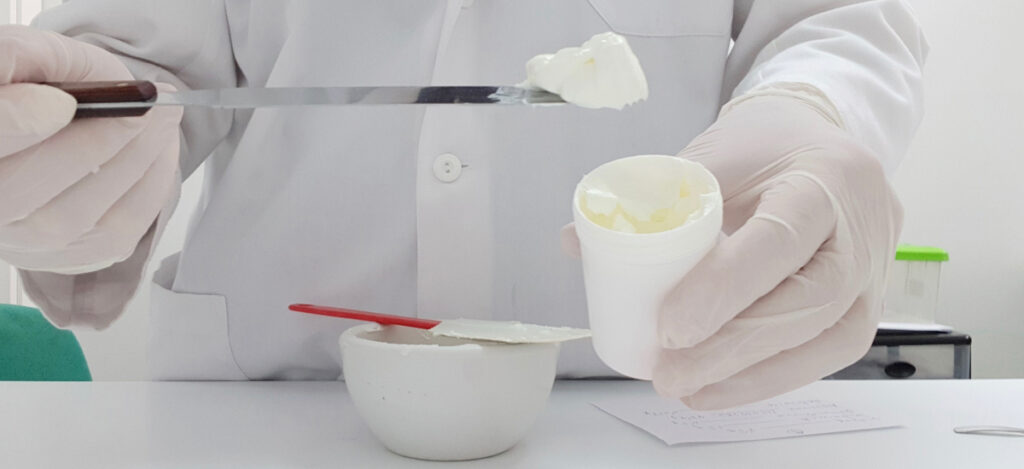How To Overcome Filling Challenges With Viscous Parenteral Products
What is viscosity?
Viscosity is the amount of internal friction (or internal resistance) between components in a fluid. Honey is an everyday example of a highly viscous product. Products with high viscosity are considered “thick” and flow slowly. In contrast, water is an example of a fluid with low viscosity. Products with low viscosity are considered “thin” and flow quickly and easily. A fluid’s flow speed depends on how quickly the molecules in a fluid can rearrange and move past each other. Thus, liquids with small molecules tend to have low viscosity. Liquids with long-chain molecules (such as hyaluronic acid) have higher viscosity. Also, liquids with molecules that can form bonds with each other are more viscous. The bonding of glucose and fructose in honey is why honey is so viscous.
What types of parenteral and cosmetic products are viscous?
Viscous parenteral and cosmetic products have formulations with high concentrations of large molecules or non-aqueous solvents. Highly viscous formulations contain both. Examples of large molecules include monoclonal antibodies, proteoglycans, and high molecular weight polymers. Proteoglycans like hyaluronic acid are included in many cosmetic or parenteral products. Additionally, controlled release versions of parenteral formulations often include high molecular weight polymers. When it comes to non-aqueous solvents, oil-based product formulations tend to be the most viscous.
20 Top Monoclonal Antibody & Biological Therapeutics Companies
- Biocon
- ImmunityBio
- Integral Molecular
- OncoSynergy
- Kymab
- Vascular Biogenics
- Celdara Medical
- AbCellera
- SynAffix
- Carterra
- Agenus Inc.
- Batavia Bioservices
- Goldfinch Bio
- Humanigen
- Genentech
- Roche
- AstraZeneca
- Amgen
- AbbVie
- Pfizer
What equipment is used to fill viscous products?
Viscous or sticky liquids are hard to transfer and subdivide. These types of products require specialized heavy-duty machinery for rapid production filling. Filling for highly viscous products is often performed with either a pump filler or a piston filler. Pump fillers use a pump to assist with moving the product through a pathway (usually tubing) and into individual product containers. Pump fillers can be based on pulse fills or time-based fills. Pulse fills have slightly better volumetric accuracy over time-based filling. Piston fillers use a cylinder and piston system to push products into individual bottles or containers. In these systems, the product fills the cylinder where the piston retracts. Once filled, the piston returns to the cylinder to eject the liquid. The size of the bottles being filled determines the size of the piston. Since the cylinder will not change, the piston filling has high volumetric fill accuracy. Piston filling is the preferred method if a product contains large particulates. Also, pastes and putties are often easier to fill using a piston filler. However, corrosive products are best filled using a pump filler with a chemical-resistant pump.

Summary
Overall, viscous or sticky product formulations are hard to transfer to individual product containers. Often viscous products result from parenteral product formulations that contain large biological molecules, long polymers, and proteoglycans. Other viscous products include non-aqueous solvents such as oil. When filling a thick parenteral or cosmetic product, ensure you choose a contract testing organization to support your sterile filling needs.
MycoScience is a contract manufacturing organization that specializes in filling sterile syringes and vials for parenteral products. MycoScience also offers Bacterial Endotoxin Testing, Preservative Efficacy Testing, Sterilization Validations, Bioburden Testing, Cleaning Validations, Microbial Aerosol Challenge Testing, Accelerated Aging, Microbiology Testing, Cytotoxicity Testing, EO Residual Testing, Package Integrity Testing & Environmental Monitoring services for medical device companies, and allied industries. MycoScience is an ISO 13485 certified facility.
References
Michael J. Akers. Sterile Drug Products Formulation, Packaging, Manufacture, and Quality. Drugs and the Pharmaceutical Sciences. Informa Healthcare. 2010.
Andrew Donnelly. Injecting High Viscosity Drugs: Challenges and Solutions. Bespak.com.
Sharing this in your social netwroks

